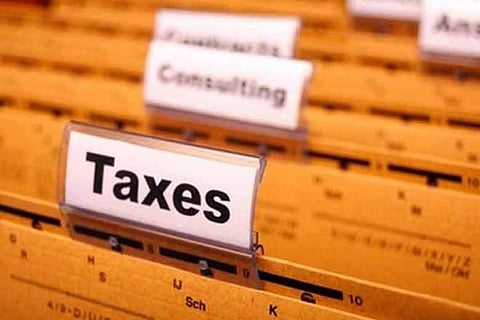

NEW DELHI: Aggrieved by incessant tax demands and disallowance of expenses, a representative of auto and IT industries has written to the tax department in order to bring to its notice specific difficulties that taxpayers encounter during assessment processes, and also suggested reining in tax officers.
In a letter written to Pragya Sahay Saxena, member, Central Board of Direct Taxes (CBDT), industry representatives have pointed out that the income tax department has been arbitrarily disallowing certain expenses and giving very short time for explaining difference between turnover reported in GST returns and statutory financial statements.
The letter, a copy of which is with the New Indian Express, also pointed out that often tax officers are making adjustments based on information provided by other taxpayers.
In the representation made, the industry has given a detailed account of issues faced while complying with the tax rules and made several suggestions to ease the situation.
Elaborating on the difference between turnover reported in GST returns and statutory financial statements, the letter says the difference could be ‘on account of the nature and framework of GST provisions and not necessarily because of income not being disclosed in financial statements’.
It cited inter-branch stock transfers, transactions with related parties without consideration, and deferred revenues at the end of the financial year, which are included as part of GST returns but will not be considered for financial statements.
The industry, therefore, requested the tax department to consider making the GST turnover reconciliation with financial statements part of the tax audit report. “This would provide tax authorities with additional confidence in the reconciliation, allowing them to focus on other critical items during assessments,” it said.
The letter also raised the issue of disallowance of legitimate business expenses, balance sheet items, or disallowance of expenses by alleging non-withholding of taxes on transactions where tax deductions are not required, or expenses are misunderstood by tax officers.
The industry has requested the tax department to issue guidelines advising tax officers to accept the genuineness of expenses in specific situations, such as when the taxpayer has no history of non-compliance or when sufficient supporting documents (e.g., 85-90% samples) are provided.
It also suggested setting materiality thresholds, accounting for the overall tax consequences of non-submitted immaterial details.
“Insignificant values with minimal tax liability impact but requiring significant extraction efforts may be deemed immaterial, avoiding exhaustive scrutiny,” read the letter.
The industry also suggested that field officers must obtain approval from higher authorities, especially in cases where the quantum of addition proposed exceeds a specified threshold.
The industry is also of the opinion that voluminous information requests by the tax department should be made early on, rather than as part of show-cause notices.
It was also suggested that the recording of the assessment process should be easily accessible on the taxpayers’ income tax portal.